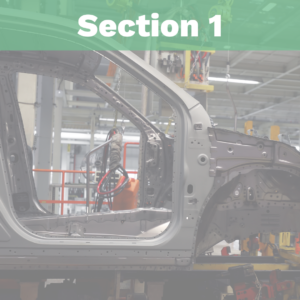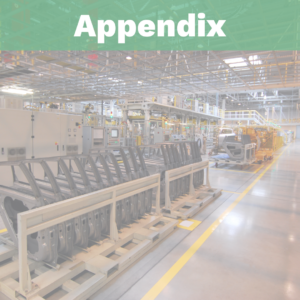Automakers, policymakers, community stakeholders, workers and unions all have critical roles to play in making sure the auto industry benefits its workers and the entire state to the greatest extent possible. Below are some recommendations that would strengthen Alabama’s auto industry and help the state build a more prosperous economy that makes life better for every Alabamian.
Recommendations for auto employers
Employers must address the areas they are falling short in: declining wages, pay gaps and working conditions. Specifically, we recommend they do the following:
- Reverse wage cuts and pay autoworkers at least as much as they earned in 2002. The long-term decline in pay is holding back Alabama’s economy and hurting workers’ ability to support their families in the face of the rising cost of living. Given healthy industry profits over the past decade, auto employers should have sufficient revenues to support wage increases to 2002 levels, even if they need to phase it in over multiple years. In addition, employers should commit to bringing Alabama’s autoworkers’ pay up to the national average.
- Close racial and gender pay gaps. The gap in pay between male and female autoworkers – and between white workers and everyone else – is glaring, especially given Alabama’s historical legacy of discrimination. Whether these pay gaps are the result of discrimination or occupational segregation, the industry must make progress by raising the wages of women and Black workers and ensuring companies are paying their workers the same for similar work, regardless of race or gender. Taking these steps would demonstrate commitment to advancing equal pay and race relations in Alabama and to addressing the income inequality that afflicts women and workers of color and ultimately drags down Alabama’s economic growth.[151] Specifically, employers should focus on breaking down occupational segregation through targeted hiring and training programs such as apprenticeship programs that intentionally recruit underrepresented groups into high-wage, high-skill jobs.
- End the tiered wage and benefit system for all auto employees. The tiered system divides workers into classes: those hired before the system went into effect, who earn better wages and pay less for health insurance, and those hired after, who earn lower wages and pay more for health insurance. Further division of workers occurs when companies hire temporary workers hired through subcontracting agencies. Temporary workers lack benefits and protections other workers have. As the industry grows, more workers will fall into the lower tiers, ultimately kneecapping their long-term earning potential and diminishing their ability to close the gender and racial wage gap. Ending the tiered system is broadly popular among the auto employees we interviewed.
- Provide child care to autoworkers. Because child care is so expensive, lack of affordable day care acts as a major barrier for workers with children – especially women – to enter the labor force generally and seek employment in the auto industry in particular.[152] This barrier also increases the difficulty for workers already employed in the industry, especially given scheduling challenges discussed below. If auto employers increased child care availability, either through stipends or through provision of care on site, this likely would help narrow the earnings gap between men and women and improve shift scheduling for existing autoworkers. Mazda Toyota Manufacturing in north Alabama offers a heartening example of an auto manufacturing entity taking initial steps toward alleviating child care concerns for its workers.[153]
- Provide consistent and advanced scheduling. Adequate notice for scheduling, including for training and mandatory meetings, would help workers plan their lives better. This change would cost employers nothing in wages. Aside from highly unusual genuine emergencies, training and meetings could be scheduled several weeks in advance at a minimum. This would be an improvement on the current norm, where lack of communication can mean workers too often receive notice of required on-site meetings outside their normal schedules with less than a week’s notice, according to our worker interviews. In addition, worker input on scheduling, through formalized feedback channels with anonymous options, would provide more information about workers’ needs and preferences.
- End child labor immediately in all Alabama auto plants. The use of third-party subcontractors that hire temporary workers at plants has made abuses, including child labor violations and immigrant labor abuse, much more likely. The recent documented violations at Hyundai suppliers illustrate the dangers of allowing companies to shirk responsibility for implementing basic worker protections by contracting third parties to hire workers. A temp hiring model intentionally divides these workers from others performing the same work, diminishing the ability to ensure compliance with worker protection laws and hold companies accountable for violations. The short-term solution of punishing violations is vital, but it also should be accompanied by transitioning away from hiring practices that prevent transparency in the onboarding process. One long-term solution to this issue would be to shift away from the current hiring and training model and move to pre-apprenticeship and apprenticeship programs with input and oversight from labor advocates and the full body of plant workers. These programs can be implemented as part of community benefits agreements, as well as through collective bargaining agreements, providing multiple paths to create important worker oversight.
- Enact industry-standard workplace protections to eliminate arbitrary and bad-faith discipline from supervisors. This would provide fairness, improve morale and prevent workers from being illegally targeted based on protected characteristics or activities. In some facilities, the lack of procedural safeguards puts workers on what is effectively a six-month probationary period with no protection or recourse from unfair disciplinary procedures. This is unfair for workers and creates instability and turnover on the shop floor, ultimately increasing costs for the employer.
- Enter community benefits agreements (CBAs) with local community stakeholders in large-scale, transformative projects. Community benefits agreements are agreements between employers and community organizations to provide certain specified benefits for both workers and the broader community where a facility is located. CBAs can be a useful tool for ensuring that recipients of some of the state’s largest incentive packages commit to practices that benefit members of the community in which they are located. For example, CBAs can help ensure that auto manufacturers pay local living wages, fund educational services, hire local workers or benefit local communities in other ways negotiated by community labor representatives and industry. CBAs recently have been implemented in the South, including in vehicle manufacturing at the New Flyer electric bus plant in Anniston.[154] An employer benefits from signing a CBA because doing so shows willingness to meet enforceable, concrete standards of positive impact on the communities where they make their products and profits.
- Respect workers’ right to organize their workplaces. Companies should refrain from interfering in organizing campaigns and maintain neutrality throughout unionization drives. Further, when a plant’s workforce chooses to unionize, the company should come to the bargaining table in good faith, without delaying tactics or needless obstacles to negotiations.
Recommendations for policymakers
Policymakers also have a role to play in getting the most out of the auto industry for Alabama’s workers and the state’s economy. Most importantly, they must fix Alabama’s broken, low-road and unaccountable economic development model, beginning by reforming the Alabama Jobs Act.[155] The auto industry has benefited heavily from the Jobs Act and other state subsidies, so ensuring the program delivers is essential to making sure the industry delivers for Alabama’s workers. Recent updates have improved the program’s fiscal responsibility, but lawmakers still need to take much bigger steps to ensure Jobs Act credits consistently deliver results for Alabama’s workers. These steps include:
- Performance standards, including wage and benefit requirements. The Jobs Act already requires companies to state clearly the number of jobs they will create. But legislators should update the program to specify that these jobs must be full time, provide health insurance and pay prevailing wages. If companies are unwilling to meet these standards, they should not be eligible to receive Jobs Act incentives. This would ensure the state is using taxpayer dollars to subsidize the creation of quality jobs, rather than low-road jobs that promote poverty instead of broadly shared prosperity.
- Prevailing wage standards. The prevailing wage is the average wage paid to workers performing similar work in a comparable geographical area. Laws incentivizing companies to pay workers the prevailing wage can help boost worker well-being and benefit the communities where facilities exist. In other states, “prevailing wage laws have been shown to support jobs offering good wages and benefits.” [156] For example, prevailing wage laws “have offered construction workers a route to the middle class and increased wages and enrollment in health insurance for service workers such as janitors. They have also been shown to close racial pay gaps in both the construction and service sectors, as employers must pay all workers the same minimum rate, regardless of race, leading to especially large compensation gains for workers of color.” [157] Adding prevailing wage provisions to the Alabama Jobs Act could help ensure that employers are neither taking advantage of nor shortchanging Alabama workers by offering non-competitive wages when compared to the industry overall. Such a provision also could help offset some of the wage disparities and occupational segregation trends identified in this report.
- Accountability and clawback protections. Companies promise to create jobs all the time in exchange for public subsidies. But as we saw with Shipt (referenced in Section 8), the Jobs Act provides taxpayers and legislators with no real way to hold companies to their promises – or even count how many jobs a company has created at all with these public dollars. Legislators should update the Jobs Act to take back the money expended on tax incentives if companies do not meet their job creation promises. Widely used in state economic development programs across the country, these “clawback” provisions give lawmakers the legal tools necessary to hold companies accountable for their promises and are considered a best practice to protect workers and taxpayers.[158] Clawback provisions can include both ineligibility for future tax expenditures and return of amounts already disbursed to companies. Clawbacks should be used in cases where employers receiving incentives don’t create the jobs they promised, fail to pay the wages they promised or commit serious labor violations under federal or state rules.
- Transparency and reporting requirements. Under the current Jobs Act, no one is obligated to see whether companies are living up to their promises. Neither the Alabama Department of Commerce nor any other state agency is required to investigate companies’ progress in job creation or investment. Monitoring and public transparency are key steps in holding these companies accountable for upholding their claims about what they are doing with public subsidies.
Beyond the Jobs Act, Alabama needs to shift its broader economic development approach away from its low-road past and toward a higher-road future that invests in workers and bolsters the state’s ability to compete with Georgia, Texas and other states for high-tech jobs. Specific recommendations include:
- Greater state funding and investment in K-12 and workforce development. Global companies are increasingly looking for workers with the right technical skills, educational attainment and demonstrated ability to engage in innovative, adaptive work. Alabama cannot compete for these companies if it does not invest more in empowering workers to meet their full potential. This includes more investment in K-12 education, technical and vocational training, and occupation-specific training in key sectors. The greater the skill level of Alabama’s workforce, the more competitive the state will be in the global economy, and the higher wages the state’s workers can command.
Finally, Alabama’s policymakers should enact long-awaited statewide labor protections with a regulatory regime able to enforce them. These reforms should include:
- Ending “right–to–work” laws that disadvantage workers in disagreements with management.
- Giving preference for state contracts to go to companies with unionized workforces and/or employee ownership.
- Repealing the law preempting localities from setting worker protections that would make Alabama cities more competitive with similar cities in neighboring states.
Organized labor: a vital partner
State officials’ reaction to union activity has been largely hostile throughout Alabama’s history and often remains so in current practice. “[A]ntiunionism in the South is preserved and protected by measures that resemble the actions of antidemocratic governments in Asia and Latin America more than the ideal that America is the land of a free people.” [159] Recently, that reactionary hostility has included using state law enforcement to help break strikes[160] and state courts to prevent workers from picketing.[161]
But this hostility to unionized workers is a bad fit for modern industrial practices and is counterproductive within the automotive sector. Labor unions help ensure the safe and efficient operation of plants. Unions can provide both training pathways and quantifiable process improvements, as a result of their role as trusted worker advocates, by gathering input from line workers. For example, “[t]he United Automobile Workers union (UAW)—which represents autoworkers at the Big Three U.S. car manufacturers (Ford, General Motors, and Stellantis [formerly Chrysler])—[wa]s a constructive partner in the U.S. auto industry’s resurgence.”[162] Also, within the auto sector, at Ford plants alone, 2006 UAW-negotiated process improvements were responsible for generating estimated efficiency improvements of more than $500 million).[163] Stated differently, “[t]he expertise the union now brings to discussions of quality, safety, predictive and preventative maintenance, workforce development, team-based operations, and other such topics” are clear reasons for the auto sector management to cooperate with workers to implement process improvements instead of engaging in needless conflict.[164]
The auto manufacturing sector’s shortcomings in recent years, including overall wage declines and wildly unequal pay across demographics, can be made right with a participatory process that affords workers the input they deserve into the conditions under which they labor. And as a significant sector-wide shift toward electric vehicle (EV) manufacturing opens up new and large opportunities for innovation and manufacturing in Alabama, ensuring that the foundational aspects of worker-management relations are built on a sustainable, fair framework will set the correct course for the industry for decades to come.
Alabama policymakers should view workers and their unions as a vital partner in manufacturing, not as an enemy or source of wealth extraction. The ability to provide worker-focused insights that make factories safer and more efficient is an indispensable role uniquely suited to labor unions. The state should seek to expand that role, not limit it out of misguided, stubborn adherence to 19th-century economic views. Enacting policies to empower workers would position Alabama to reap even larger rewards from its big bet on the auto industry – and to build a more inclusive and prosperous future for every Alabamian.

Additional sections
 Executive summary
Executive summary
 Introduction
Introduction
 The high stakes and big bet on Alabama’s auto industry
The high stakes and big bet on Alabama’s auto industry
 The ways the bet on auto benefited Alabama
The ways the bet on auto benefited Alabama
 A wheel in the ditch: Autoworkers see falling pay
A wheel in the ditch: Autoworkers see falling pay
 A wheel in the ditch: Pay gaps and occupational segregation
A wheel in the ditch: Pay gaps and occupational segregation
 A wheel in the ditch: Economic impact of falling wages and the pay gap
A wheel in the ditch: Economic impact of falling wages and the pay gap
 A wheel in the ditch: Working conditions worsen
A wheel in the ditch: Working conditions worsen
 The auto industry and Alabama’s low-road economic development approach
The auto industry and Alabama’s low-road economic development approach
 Research design and methodology
Research design and methodology
[151] Economic Policy Institute, supra note 130.
[152] Alabama Workforce and Wage Gap Task Force, supra note 93.
[153] Kellie Miller, “Mazda Toyota employees begin enrolling in new child care assistance program,” WAFF 48 (April 3, 2022), https://www.waff.com/2022/04/03/mazda-toyota-partners-with-tootris-provides-child-care-assistance-employees.
[154] Paola Rodelas & Michael Troncoso, “Major electric vehicle manufacturer signs first multi-state agreement with community and civil rights group for equitable hiring and good jobs,” Jobs to Move America (May 26, 2022), https://jobstomoveamerica.org/press-release/major-electric-vehicle-manufacturer-signs-first-multi-state-agreement-with-community-and-civil-rights-group-for-equitable-hiring-and-good-jobs.
[155] Ala. Code Title 40, Chapter 18, Art. 16, https://casetext.com/statute/code-of-alabama/title-40-revenue-and-taxation/chapter-18-income-taxes/article-16-alabama-jobs-act.
[156] Glass, et al., supra note 123.
[157] Ibid.
[158] Good Jobs First, “Key Reforms: Clawbacks,” https://goodjobsfirst.org/key-reforms-clawbacks.
[159] Atkins, supra note 8, at xii.
[160] Collins, supra note 129.
[161] Associated Press, “Judge orders striking coal miners to stop picketing” (Oct. 29, 2021), https://apnews.com/article/business-alabama-tuscaloosa-strikes-united-mine-workers-of-america-ae76d7d627cdbb90f8845c7a6ce29c9f.
[162] Cutcher-Gershenfeld, et al., supra note 73.
[163] Ibid.
[164] Ibid.


